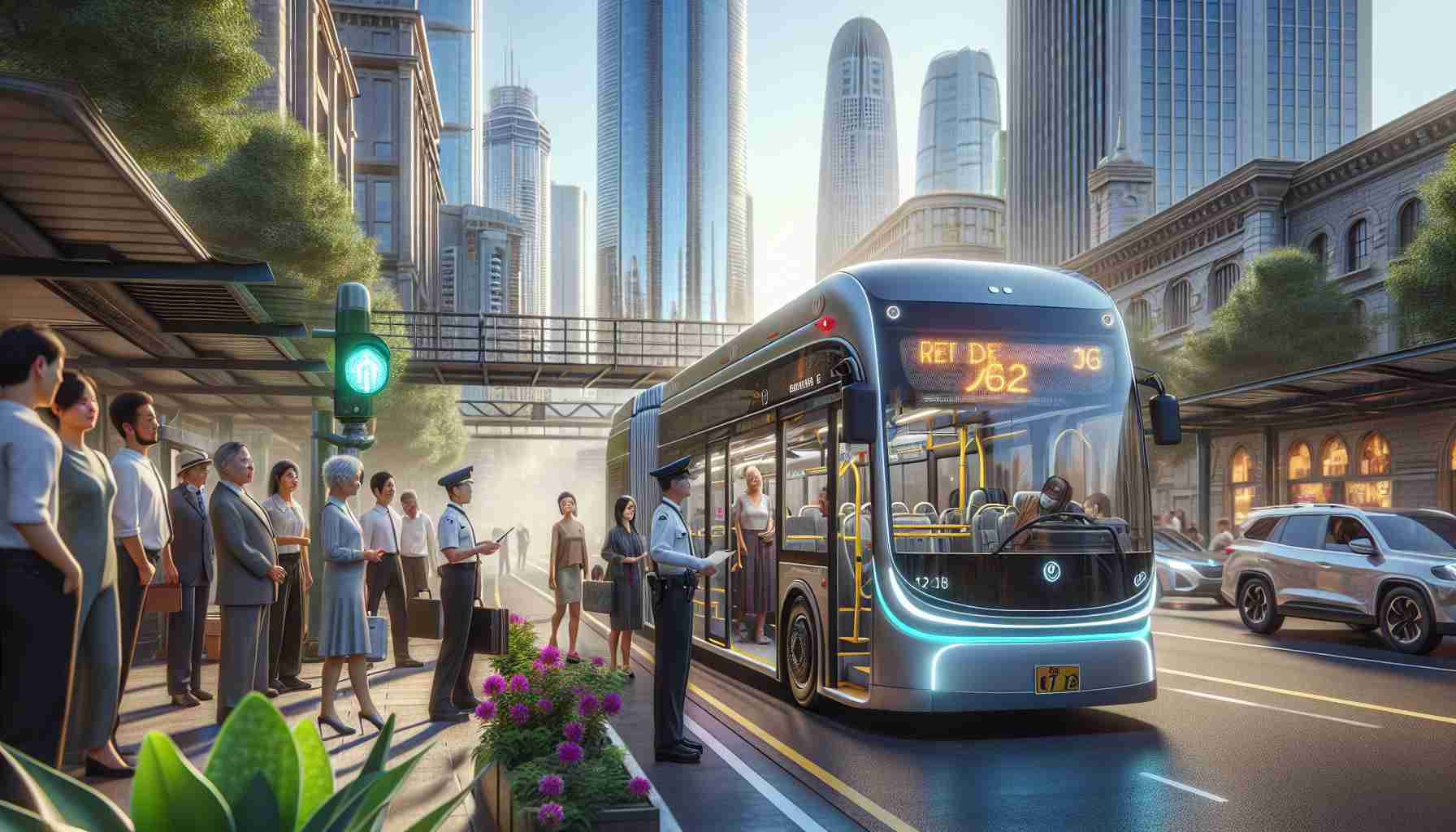A Bold Move Towards Sustainable Transportation in North Somerset
In a significant step toward cleaner public transport, First Bus is launching an ambitious project to introduce electric buses to Weston-super-Mare and Bristol. The company is investing £15 million to establish a new charging depot in Weston-super-Mare, set to house 24 electric buses arriving next year. This initiative is part of a larger £59 million plan, which includes a £44 million investment to upgrade the Hengrove depot in Bristol for 74 electric buses.
These zero-emission buses will replace aging diesel models, resulting in a remarkable reduction of 75 tonnes of CO2 emissions per bus annually. Collectively, the fleet’s environmental benefit equates to removing approximately 5,250 cars from local roads. The transformation at the Weston site is expected to wrap up by March, while upgrades at the Hengrove site aim for completion by July.
The projects involve extensive infrastructure improvements, including nearly 400 tonnes of steel to build gantries that will efficiently distribute power to the electric buses. First Bus officials emphasize that adopting electric buses will significantly enhance the travel experience for passengers by offering a quieter and cleaner service.
With increased passenger numbers recently reported, this investment underscores a strong commitment to a sustainable future and aims to have a fully zero-emission fleet by 2035.
Broader Implications of Sustainable Transport Initiatives
The initiative by First Bus to introduce electric buses in North Somerset marks a pivotal moment not only for public transportation but also for broader societal and environmental characteristics. As cities strive for cleaner air and reduced traffic congestion, this move highlights a trend toward decarbonizing urban transport, which plays a crucial role in combating climate change. The shift to electric buses could serve as a template for other cities grappling with similar challenges, demonstrating how investments in electric public transport systems can encourage the use of public transit while reducing urban vehicular emissions.
Culturally, the embrace of electric buses signifies a growing public commitment to sustainability. As communities become more conscientious about their carbon footprints, public support for such initiatives can foster a cultural ethos that prioritizes green technologies, influencing policy, and encouraging private sector participation in sustainability endeavors.
From an economic perspective, the transition could generate local job opportunities tied to the construction and maintenance of charging infrastructure and electric buses themselves. Furthermore, as demand for electric vehicles rises, there is potential for a burgeoning market in related industries, such as renewable energy and battery technology.
Looking ahead, the environmental impact of these projects could be substantial. With cities like Bristol aiming for zero-emission fleets by 2035, effective implementation of similar programs worldwide is essential to achieving global climate goals. The focus on electric public transport can lead to long-term reductions in greenhouse gas emissions, thereby fostering healthier urban environments and enhancing the quality of life for future generations.
Revolutionizing Public Transport: The Future of Electric Buses in North Somerset
A Bold Move Towards Sustainable Transportation in North Somerset
In a transformative initiative focused on sustainable public transport, First Bus is taking significant strides to introduce electric buses to the communities of Weston-super-Mare and Bristol. This noteworthy project represents a £15 million investment for the establishment of a new charging depot in Weston-super-Mare, which will be ready to accommodate 24 electric buses set to arrive next year. This effort is a key component of First Bus’s larger £59 million plan, which includes a substantial £44 million upgrade to the Hengrove depot in Bristol, intended to serve an additional 74 electric buses.
Key Features of the Electric Bus Initiative
The new fleet of zero-emission buses is designed to replace outdated diesel models, leading to a dramatic reduction of around 75 tonnes of CO2 emissions for each bus annually. When combined, the environmental impact of this transitioned fleet is akin to removing approximately 5,250 cars from local roadways, underscoring the positive effects on air quality and urban pollution.
Timeline and Infrastructure Developments
The scheduled completion for the transformation at the Weston site is by March, while enhancements at the Hengrove depot are projected to finalize by July. This development will not only facilitate the transition to electric vehicles but will also involve substantial infrastructure upgrades. Notably, nearly 400 tonnes of steel will be utilized to construct gantries for the efficient distribution of power to the fleet of electric buses.
Enhanced Passenger Experience
First Bus officials are confident that the integration of electric buses will significantly improve the overall travel experience for passengers. With reduced noise pollution and cleaner emissions, the new buses are expected to provide a quieter and more pleasant journey, thereby encouraging higher ridership and supporting the wider adoption of public transport.
Commitment to Zero-Emission Goals
This ambitious investment reaffirms First Bus’s commitment to achieving a fully zero-emission fleet by 2035. As passenger numbers have recently surged, this strategic move signals an unwavering dedication to a sustainable future and recognizes the growing demand for greener transportation options.
Pros and Cons of Electric Buses
Pros:
– Environmental Benefits: Reduces CO2 emissions significantly, improving air quality.
– Operational Efficiency: Lower maintenance costs compared to diesel buses.
– Enhanced Passenger Comfort: Quieter rides lead to a better travel experience.
Cons:
– Charging Infrastructure Needs: Significant investment in charging stations required.
– Initial Costs: Higher upfront costs for electric buses compared to traditional buses.
– Dependency on Electricity Supply: Performance can be hindered by issues related to the electric grid.
Looking Ahead: Trends in Sustainable Transportation
The shift towards electric public transportation aligns with broader global trends prioritizing sustainability and environmental stewardship. With increasing investments and technological innovations, such as advances in battery life and charging efficiency, the potential for electric buses to replace traditional diesel buses is promising.
For further information on this initiative and the future of electric public transport, visit First Bus.
